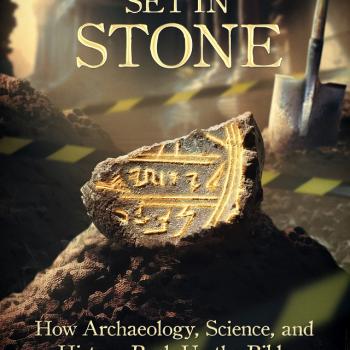+ Double Standards in How Christian Conversions are Treated, Compared to the Often Chilly Reception of Critiques of Atheist Deconversion Stories / Atheist “Exegesis” of the “Doubting Thomas” Passage

Illustration (anonymous) from Nursery Novelties for Little Masters and Misses (1820), showing a “dunce” wearing a fool’s cap with bell and ass’s ears. The loving, infinitely wise atheist comes to give aid to the poor, imbecilic, ignorant Christian, devoid of reason, logic, and facts alike [public domain / Wikimedia Commons]
*****
I’ve been roundly criticized lately by many atheists because I have written several posts that are critical of atheist deconversion stories (one / two / three / four / five / six / seven): as being inadequate as any sorts of disproof of Christianity. But then, lo and behold, I just happened to see a post on my sidebar today, by atheist Chad DeVillier, (on Bob Seidensticker’s Cross Examined blog) entitled, “The Disparity Between Religion and Reason.” Can you imagine if I had a post called, “The Disparity Between Atheism and Reason”? Then there would be, no doubt, two more comboxes of 300 and 100+ posts devoted to how intolerably bigoted I am, just as there has been in the last five days. Chad wrote in the piece itself (his words in blue below):
*****
We are not and cannot be on the same playing field, they the religious and we the non-, because those who have come to accept deities into their lives have done so either largely or entirely for emotion-based reasons—“feeling God’s presence,” faith, subjective experiences, correlations that cannot be proven between events that cannot be verified, etc.
***
[A] religious person who has based their entire life, hope, and future on an ideology is vastly less capable of being objective than someone whose entire source of purpose and hope does not depend on faith in their beliefs. You cannot talk objective reason with someone who is not willing to seeing things through a lens other than their own.
***
Logical reason only impacts those not already convinced of something else, and subscribers to a religion that demands faith capable of moving mountains are much too far removed from the reach of reason to plausibly claim that they are daily willing and capable of suspending that immovable faith in order to ask and answer uncomfortable questions impartially.
***
An answer of anything other than a complete willingness to abandon that which they cling to most if the facts demand it, and a need only for objectively verifiable evidence in order to do so, is a proclamation that they cannot be reasoned with and are not capable of a discussion based on empirical reason. One cannot claim to champion reason if one will not allow oneself to be swayed by it; the objective person must be prepared, always, to be wrong.
***
Keep the separateness of the playing fields in mind when next you attempt to induce critical thought into the mind of the faithful; reason is a powerful tool, but, like the Almighty Mystery in the sky, can only influence those who accept it into their hearts in the first place.
Of course I couldn’t resist interacting with this condescension and philosophical child play a bit, and so I entered the fray (heaven help me!):
That’s funny. I’ve been catching all kinds of hell lately from many atheists for having the audacity to critique atheist deconversion stories as inadequate arguments against Christianity. You’d think I had attacked mom or apple pie or summer days at the lake, to see all the fuss and stink.
But we see that — as always — it’s open season on Christian conversion stories. Why would that be? Is it that we’re so relentlessly unreasonable and y’all are invariably so reasoned (and love science, etc., like we supposedly don’t), so that a critique from us of your stuff is impossible beforehand, by the nature of the case? :-)
I’m all for atheists critiquing our arguments in our conversion accounts (insofar as they are there). I just marvel at the thin skin of so many atheists when we deign to do the same thing back.
Much more fair, I think, is the view that a conversion story on either side is not usually intended to be (or is by nature) a logical tour de force. Both sides assuredly have their non-rational, emotional, experiential (etc.) elements. And the purpose of these stories on both sides is primarily to preach to the choir.
That’s pretty disheartening to hear. Anyone who surrounds their position with so much emotion that they are a chore to reason with is to be called out for failing to be objective in a discussion; I only single the religious out because religious conversion and belief is almost exclusively based on subjective reasoning, whereas atheism *should* be based on objective facts. Obviously, there are some atheists who were born into it and are no better at defending it than most religious Americans, but regardless of fools like that, atheism is a conclusion that can be reached by objective reasoning, whereas religious conviction requires subjective beliefs and emotion-heavy faith.
***
The difference, of course, is that the religious need to accept reason before being swayed by it because they’re being ruled by emotion, whereas the non-religious would only need to accept Mr Deity before being swayed by him because they were being too rational. Which one sounds better– too influenced by emotion, or too influenced by reason?
And of course religious people can become reasoned out of their beliefs; I am one of them! …though, to this day, I still wonder how all that reason snuck in past my walls of blind, emotion-clad faith… must be a miracle!
It is remarkable that reason changed your mind, since by your own account, you possessed mere blind / emotional faith. That would have been tough to penetrate indeed. Millions of Christians don’t know their faith very well, let alone reasons to hold its tenets. You were clearly one of those. And many atheists are quite unacquainted with basic philosophy and logic.
Don’t get me wrong, I knew my stuff– I actively studied the Bible on my own time and majored in Biblical Studies at a Bible-based private college. But, as with all religious people, I had blind faith to block out evidence to the contrary. I think the only thing that rescued me from the throes of irrational reasoning masquerading as rationality was my personality– I am an INTP, and by nature question things and demand logic; it was only a matter of time before I realized I could apply this to my own faith.
And now you have no blind faith, huh? There is absolutely nothing where you don’t have proof; nothing where you have to accept an axiom that itself can’t be proven?
I guess you have given up on logic, mathematics, and science: all involve such axioms: indeed, start from them. Thus, we could argue that in accepting all of those, you were being merely “subjective” rather than “objective” since none of those things begin with “empirical proof.”
And you are blissfully free from emotion now? I see. Do you love anyone? Do you explain that in terms of Spock-like “objectivity” and pure reason, too? You seem quite emotional when you knock Christianity. But maybe it’s just an exceptionally strong emotion-free passion . . .
Mathematics and science don’t require blind faith because each discipline is backed by significant objective evidence. The point is not to have everything be conclusively proven– scientists will be the first to say that nothing is conclusively provable because evidence could, at any time, disrupt everything we know on any subject– the point is to have significant objective evidence in favor of what you hold to be true, and to have come to hold it to be true BECAUSE of this evidence. That is not how religious conversion works. That is not the way that the Bible asks people to come to belief; it asks for blind faith, scolding those who, like Thomas, simply asked for a bit of proof first.
They start with unprovable axioms. In other words, one must exercise a sort of faith to accept those without initial evidence, and then proceed: scarcely different from religious tenets.
Jesus scolded Thomas, it’s true, but it was a matter of degree (better and best), and you neglect to also note that He came back in one of His Resurrection appearances precisely to persuade Thomas. Thus, it is hardly a proof of supposed Christian “blind faith” to cite this story. Quite the contrary: the whole point of that story was to show that there is such a thing as excessive demands for proof (which Jesus and Paul talk about a lot), not that proof itself is unnecessary or frowned-upon.
The purpose of most of Jesus’ miracles (including, ultimately, His own Resurrection) was also to give testimony to His claims to be God, which is hardly a ringing endorsement of “blind faith” either, but rather, empirical evidence right before people’s eyes (much as atheists are constantly demanding today).
If you’re gonna bash the Bible, please do so, rather than bashing a straw man caricature of the Bible and what it teaches.
They start with them… but they don’t end with them. Objective evidence quickly surfaces, or the axioms are summarily rejected. Not so with religious tenets, though this should be the case.
The Thomas story you mention ends with Jesus saying to him, “Because you have seen me, you have believed; blessed are those who have not seen and yet have believed,” which is blind faith in literal definition.
The performing of miracles would, indeed, be a solid reason for people at that time to believe. We have documentation of those people witnessing them– the Bible. So we must– as you implied– search the Bible for veracity. When we do so, unlike mathematical or scientific ideas, it falls far short of verisimilitude. Therefore accounts of Jesus’ miracles are also cast into doubt.
Again, the “Doubting Thomas” story is not sanctioning blind faith at all: else Jesus wouldn’t have appeared, and He (or the Gospel writer) would have simply said something like, “Blessed are those who believe anything whatever with no evidence whatever.” Then it would be consistent with the atheist caricature of it.
Jesus, of course, said nothing remotely like that. All He said was that it was better to have faith without the supposedly “required” miracles than with them. The fallacy you commit is to assume that empirical proof is all there is along the lines of evidence and knowledge. But that’s ridiculous (both philosophically and logically).
There are eyewitness accounts (they could have heard such accounts of other people witnessing Jesus healing people) — this is the nature of most historical “facts” that we all accept — , there was Scripture, which we believe to be a revelation from God. There was his own previous experience as an apostle: what he himself had witnessed.
You collapse “not seen” [Him risen] into all evidentiary or corroborating knowledge whatever; therefore you conclude that Jesus is teaching blind faith. This is illogical and doesn’t follow at all (classic eisegesis: reading into it what isn’t there).
Jesus’ point was that people have more than enough evidence to believe, without keeping up the demand for more. In the Bible, again and again (Old Testament and New) it is taught that hardness of heart and rebelliousness cause people not to believe what they should believe: not any lack of the miraculous.
Hence, Jesus said, citing Abraham: “`If they do not hear Moses and the prophets, neither will they be convinced if some one should rise from the dead” (Lk 16:31: RSV).
Jesus’ words calling for faith without seeing him– faith without evidence, since no other evidence of Jesus’ resurrection existed– is blind, and this idea is consistent with many other passages of the Bible calling for childlike faith that doesn’t demand proof. This is not something some people are capable of; we need hard proof to believe, and we don’t think we’re asking too much by that.
Recorded eyewitness accounts are where we get a lot of historical information… but those accounts are always corroborated by a plethora of sources. Biblical accounts are not. You can believe that Scripture is somehow on a separate level because it is divine revelation, but again, we without emotional connection to the religion don’t see any evidence of divine revelation (at all), so we are forced to treat the Bible as any other account– susceptible to scrutiny.
We’re just going round and round with Doubting Thomas. I don’t see how you have overcome my objections at all. The Bible teaches again and again that we are to give reasons for why we believe what we do:
1 Peter 3:15 Stand ready to make a defense [Gk., apologia] of your faith.
[it’s the same Greek word used in Plato’s Apology: whereby Socrates elaborately defends himself against bum raps]
Jude 3 Contend earnestly for the faith . . .
Acts 1:3 To them he presented himself alive after his passion by many proofs, . . .
Both Paul and Jesus are recorded as having “argued” and “reasoned” with opponents again and again. None of that is consistent with the thoroughly misguided notion that the Bible and Christianity supposedly teach “blind faith.” Why argue at all for something if it is believed to not have a rational basis and is to be accepted blindly?
So you’re dead wrong on that. You want to believe that this is what Christianity teaches, and so you pretend that it is actually in the Bible, by butchering texts like Doubting Thomas: according to the time-honored “butcher and hog” tradition of atrocious, laughable atheist pseudo-exegesis.
Do you believe that people currently have more than enough evidence to believe without needing any more?
I believe there is more than enough evidence, if in fact it were known to people. But then of course they have to be of a predisposition and fair-minded enough (not hostile!) to actually receive it. Many simply haven’t become acquainted with the abundant resources of philosophy of religion and apologetics, biblical archaeology, medical documentations of miracles such as at Lourdes, etc.
Do you believe that atheists are only such because we are being rebellious and intentionally rejecting belief?
Some do that, but not all, by a long shot. I think it is a problem mostly of deficient knowledge and logic (adoption of too many false premises and fallacies); unfamiliarity with good philosophy, etc. I have written the papers:
Are Atheists “Evil”? Multiple Causes of Atheist Disbelief and the Possibility of Salvation
New Testament on God-Rejecters vs. Open-Minded Agnostics
Having been active in atheist communities for some time now, I believe that this is not generally the case; many of us are willing to accept proof, but we don’t find nearly enough of it to assuage our doubts. I remember and sometimes fondly miss (genuinely) my Christian days where I always felt loved, guided, and secure in my future. I would return if I could, but I cannot– I, and many like me, have been actively searching for evidence for some time now, and we find only mountains of evidence to the contrary.
I think the demands for proof are excessive, philosophically naive, double standards compared to what atheists “demand” in order to believe many other things, and based on unfamiliarity with the nature of axiomatic knowledge: the basis of things like logic, mathematics, and science.
We are what we eat, and the more false premises we accept, the less likely we will arrive at the fullness of truth. I hope and pray that you and many other atheists can find this truth and joy and peace that we Christians believe we have found.
***
Atheists believe in many things things they can’t “prove empirically” just as everyone else does.
It is not merely a lack of being able to “prove Christianity empirically”, it is a matter of having significant evidence against it as well. The only evidence in favor of it that could potentially be considered objective would be the Bible– since God does not reveal himself in any other way– and we have found this to be rife with contradiction, plagiarism, historical inaccuracies, scientifically illiterate assertions, and morally repugnant ideas.
Out of curiosity, what do atheists believe that we can’t prove?
This is my notorious response to that question (!):
Atheism: A Remarkably Strong, Impervious Faith in “Atomism”
This was extraordinarily misunderstood, so I wrote an accompanying apologia, explaining the precise nature of the satirical humor, and my intent:













